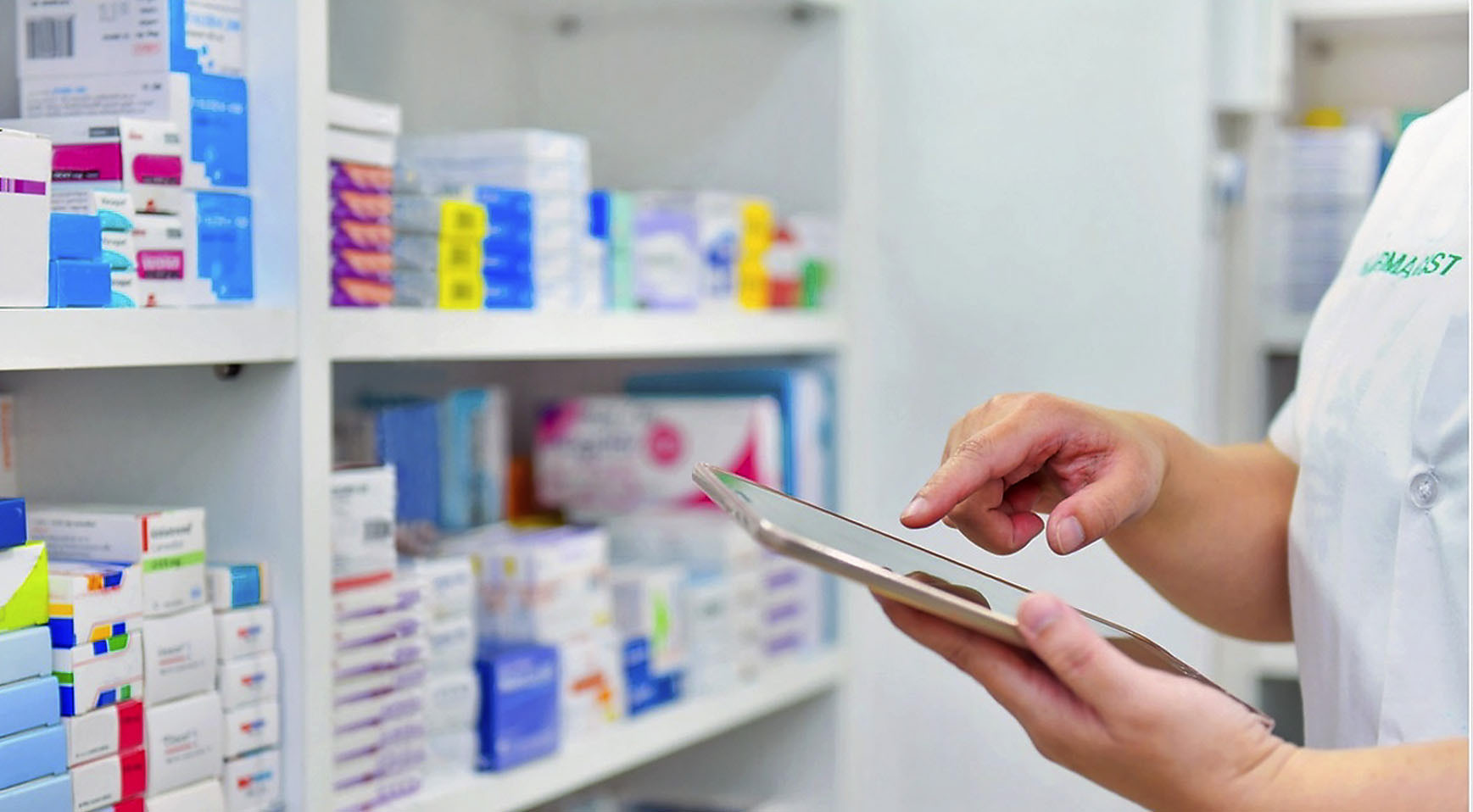SPOTLIGHT
In a global first, South African pharmacists will soon be able to prescribe HIV treatment

In what Spotlight understands to be a world first, South Africa is on the brink of allowing pharmacists with the required permits to prescribe HIV medicines without people needing a script from a doctor or nurse. Catherine Tomlinson investigates how it will work and why it may be just the boost the country’s HIV response needs.
The initiative – the Pharmacist-Initiated Management of ART (PIMART) – seeks to improve links to HIV treatment and prevention therapy among underreached and underserved groups and communities. South Africa’s PIMART programme will be the first of its kind globally – potentially paving the way for other countries.
Linking men to treatment earlier
South Africa has the largest HIV antiretroviral treatment (ART) programme in the world – more than seven million people are living with HIV, more than five million of whom are on ART.
South Africa’s success in scaling up antiretroviral treatment to treat millions is partly due to the introduction of Nurse-Initiated Management of ART (NIMART) in 2010, which allowed nurses at primary clinics across the country to screen HIV-positive people and initiate them onto ART. In the past this could only be done by clinicians and was largely hospital based.
While NIMART has allowed a huge expansion of South Africa’s public ART programme, many people are still only being diagnosed and starting treatment very late after experiencing HIV-related illnesses, putting them at risk of dying from opportunistic infections. According to data from Thembisa (the leading mathematical model for HIV in South Africa), about a quarter of adults who started ART in 2019 had CD4 counts below 200 – meaning their immune systems had already been severely compromised, making them vulnerable to tuberculosis, among other diseases.
Men in particular tend to wait too long before testing and starting treatment. This is one group pharmacists and HIV clinicians hope will be better reached through PIMART.
Francois Venter, an infectious diseases professor at the University of the Witwatersrand, explains that private pharmacies are the first port of call for many people seeking health services in South Africa, including men seeking treatment for sexually transmitted infections (STIs). These visits are an opportunity to offer men HIV tests and initiate HIV-positive men onto ART, or offer PrEP (pre-exposure prophylaxis) to those who test negative.
“We have men coming in [to pharmacies] for chronic medicine, we have men coming in for libido boosters who don’t go to doctors,” says Jackie Maimin, chief executive of the Independent Community Pharmacy Association. “We have men coming in for all sorts of over-the-counter stuff. Men don’t like to go to clinics and don’t like to go and see the doctor, but they will pop into the pharmacy.
“Pharmacies are really in the communities, there are even pharmacies in the most rural of areas.” Because men come in for a range of services, from collecting chronic medicine to buying shaving cream, there is little stigma around visiting pharmacies, and they can provide a high level of anonymity to men who are reluctant to visit primary healthcare clinics.
Venter adds: “Unlike primary clinics and GPs, pharmacies are open after hours and on weekends.”

Interviews conducted with pharmacists and patients have shown that there is a preference among underreached groups such as men, girls and young women to access sexual health services at pharmacies. (Photo: news.medical.net / Wikipedia)
Preventing HIV among girls and young women
Besides helping men to start treatment earlier, HIV clinicians and pharmacists are enthusiastic that PIMART can substantially expand the uptake of PrEP – a combination of two antiretroviral medicines taken daily to prevent HIV infection.
PrEP use is dismally low in South Africa. Health Department spokesperson Popo Maja told Spotlight in early 2021 that only 107,081 people had initiated PrEP in the public sector by that date. It is unclear how many have remained on PrEP continuously. And, says Venter, the rate of PrEP use in the private sector is even worse.
PIMART has huge potential to help scale up PrEP use, according to Maimin, who says that every month about 100,000 girls and young women seek emergency contraception in private pharmacies in South Africa.
“We see so many young women coming in for the morning-after [pill] – we know this is a group that is hard to reach… we do use this opportunity to say, ‘Have you been tested? Do you know your status?’ If we find out they are negative, surely it’s logical that the next thing we say to them is, ‘you need to remain negative, have you considered PrEP?’,” says Maimin.
Besides seeking emergency contraception, Maimin says young women commonly visit pharmacies for family planning services and to vaccinate their infants and young children, which provides further opportunities to discuss and offer PrEP.
The public ARV programme has hit a ‘ceiling’
According to Venter, the public ARV programme has reached a “ceiling” in its ability to recruit and link patients into care and many people are being left behind – and new, innovative strategies such as PIMART are critical to getting hard-to-reach groups into care.
Natalie Martyn, the former EPIC programme manager for the Southern African HIV Clinicians Society, says interviews with pharmacists, other healthcare workers and patients have revealed a preference among underreached groups such as men girls, and young women to access sexual health services, including ART, at pharmacies rather than at primary clinics or GPs.
“Pharmacists are seen as less judgemental and nicer to engage with [than other healthcare workers] – nothing shocks them, they have heard it all,” says Martyn. She adds that pharmacies are typically more accessible from homes, schools and workplaces, have better opening hours than clinics and GPs, and offer greater anonymity.
Another advantage of the PIMART programme, according to Southern African HIV Clinicians Society chief executive Lauren Jankelowitz, is that once you have enrolled you can seek treatment at any participating pharmacy in the country. An app enables patients to access their medical records and share them with other healthcare providers. “As [an] individual you own your own medical records.”
Jankelowitz notes, however, that certain groups will not be eligible for treatment initiation in pharmacies under the programme and must be referred by pharmacists to state or private facilities owing to the complexities of their care. These include people with TB or cryptococcal meningitis, pregnant women and children.
Laying the groundwork for PIMART
The clinicians society has been working with the Independent Community Pharmacy Association since 2018 towards the implementation of PIMART in South Africa, with support from Ezintsha, Digital Health Cape Town and Vula Mobile under the Expanding Access to PrEP and ARVs Innovation Consortium (EPIC).
While pharmacists have not yet been authorised to prescribe ART, PEP (post-exposure prophylaxis), or PrEP in South Africa, the consortium has piloted the initiation of ART, PEP and PrEP at a number of pharmacies across the country – both independent and corporate.
At pilot sites trained pharmacists counsel and screen individuals for ART, PEP or PrEP, while on-site nurses or off-site clinicians contacted via the programme’s telemedicine system provide final sign-off on scripts. (While NIMART has been in place since 2010, it only allows for the initiation of ART by public sector nurses, and special authorisation was sought from the Department of Health to allow nurses in private pharmacies to script antiretroviral medicines at pilot sites).
The clinicians society has developed a curriculum and training course to enable pharmacists and pharmacy nurses to prescribe and initiate ART, PEP and PrEP, which, due to Covid-19, can now be completed online. According to the society, 787 pharmacists and pharmacy nurses have completed the course and 419 scripts for ART, PEP or PrEP have been written at PIMART pilot sites around the country.

Besides helping men living with HIV to start treatment earlier, HIV clinicians and pharmacists are enthusiastic that PIMART can substantially expand uptake of PrEP. (Photo: aids-drugs-online.com / Wikipedia)
Special permits
Martyn notes that the piloting and roll-out of PIMART have been slower than expected due to delays in the granting of permits to enable pharmacists to prescribe antiretroviral medicines. For pharmacists to prescribe ART, PEP or PrEP, they must have a PIMART permit granted under Section 22(A)15 of the Medicines and Related Substances Act.
The granting of these permits has been put on hold while the South African Pharmacy Council has developed and sought public comment on the scope of practice, competency standards and accreditation requirements for pharmacist-initiated management of ART. A board notice outlining these requirements was gazetted for public comment on 22 March 2021. The public comment period is now closed and, according to Maimin, a document outlining the requirements has been approved by the council.
Once this document is published for implementation by the Health Department, pharmacists can begin applying for PIMART permits. “We are quite far down the road; the only hold-up is [that] the publishing works for the government have a backlog because of Covid,” says Maimin.
Following publication, the granting of PIMART permits to trained pharmacists should be relatively quick and seamless since, due to Covid-19, applications for Section 22(A)15 permits are now electronic and are processed and granted within 48 hours, she adds.
The permits are currently used to allow pharmacists to prescribe and deliver adrenaline and hydrocortisone to people with severe allergic reactions to a Covid-19 vaccination. (Pharmacists are already permitted to deliver certain vaccines).
Who pays for PIMART?
People seeking PIMART services will initially be required to pay for them. Equivalent services at public clinics are free or covered by medical aid when sought from private GPs.
Since PIMART services will be provided from private pharmacies that do not hold government ARV stock, people will have to pay private sector costs for ARVs. One month’s supply of a generic first-line dolutegravir-based regimen (most newly diagnosed people will start with this) costs about R350 per month.
Martyn notes that interviews with patients and healthcare workers indicate that people will pay for these services at pharmacies and for uninsured patients it is cheaper than from a GP.
“South Africans are willing to pay for their reproductive and sexual health services,” Venter adds, noting that while free condoms are widely available through public sector initiatives, half of those used in the country continue to be bought from commercial sources.
While PIMART will initially require out-of-pocket payments, its proponents hope that eventually partnerships with the government will enable private pharmacies to stock government-procured antiretroviral medicines that can be given to uninsured people.
“Here in the Western Cape and in patches in other provinces, we have been doing state family planning and [Expanded Programme on Immunisation] for a while. It works extremely well. We give the stock for free and we charge a consultation fee [~R75] to see the pharmacist,” says Maimin. “I think that when we can show the value of what pharmacist-initiated management of ART can do, I think we will be able to start discussions with the Department of Health and access that [public ARV] stock [for pharmacies].”
She adds: “It is really exciting that we will be the first in the world [to initiate PIMART], but it makes sense since we have the biggest HIV population in the world… I am sure we will then show the world that this is the way to go.” DM/MC
To learn more about pharmacies initiating antiretroviral treatment, visit the #4eachother web page or Facebook page.
This article was produced by Spotlight – health journalism in the public interest.





















 Become an Insider
Become an Insider
Comments - Please login in order to comment.